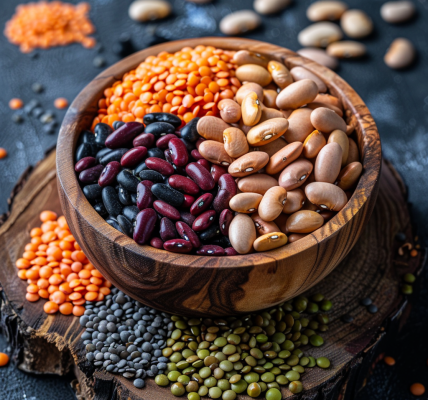As the winter months approach, it’s essential to pay attention to your heart health. The colder season can lead to various cardiovascular issues, including higher blood pressure and increased cholesterol levels, largely due to reduced physical activity and dietary changes. However, incorporating certain winter foods into your diet can significantly enhance heart health by offering vital nutrients, antioxidants, and fiber that support cardiovascular function.
During winter, our bodies can face challenges that affect heart health. The cold weather often leads to a sedentary lifestyle, which can result in weight gain and related health issues. To combat these effects, it’s crucial to focus on a heart-healthy diet that not only tastes good but also provides the necessary compounds to maintain a healthy heart.
Here’s a detailed look at seven winter foods that can help boost your heart health:
1. Leafy Greens
Leafy greens such as kale and spinach are nutritional powerhouses. They are rich in vitamins A, C, and K, as well as fiber and folate. These greens contain nitrates, which are known to help lower blood pressure and improve arterial function. Additionally, the antioxidants found in leafy greens combat oxidative stress, which can be detrimental to heart health.
2. Oranges
Oranges are not only delicious but also packed with heart-healthy nutrients. They are an excellent source of vitamin C, potassium, and fiber. The potassium in oranges plays a crucial role in lowering blood pressure, while the fiber helps reduce cholesterol absorption. Furthermore, vitamin C boosts the immune system, providing added benefits during the winter months when colds and flu are more prevalent.
3. Nuts
Nuts, particularly walnuts and almonds, are fantastic for heart health. They are rich in omega-3 fatty acids, fiber, and magnesium. Omega-3 fatty acids are known for their anti-inflammatory properties and their ability to improve cholesterol levels. Magnesium is essential for maintaining healthy blood pressure levels. A handful of nuts can serve as a quick and nutritious snack that supports heart health during the winter.
4. Pomegranates
Pomegranates are renowned for their powerful antioxidants, particularly polyphenols, which help reduce plaque buildup in the arteries. Consuming pomegranate juice or eating the seeds can significantly improve blood circulation and lower the risk of cardiovascular disease. Including pomegranates in your winter diet is a delicious way to support heart health.
5. Fatty Fish
Fatty fish like salmon, mackerel, and sardines are excellent sources of omega-3 fatty acids, which are critical for heart health. These fish help lower blood pressure, reduce triglycerides, and decrease the risk of arrhythmias. Incorporating fatty fish into your meals a couple of times a week can provide substantial heart health benefits.
6. Sweet Potatoes
Sweet potatoes are not only a comforting winter food but also a great source of fiber and potassium. The high fiber content helps regulate cholesterol levels, while potassium is essential for maintaining healthy blood pressure. Additionally, sweet potatoes are rich in antioxidants, which can help combat inflammation and oxidative stress.
7. Dark Chocolate
Yes, you read that right! Dark chocolate can be beneficial for heart health when consumed in moderation. It is rich in flavonoids, which have been shown to lower blood pressure and improve circulation. Opt for dark chocolate with at least 70% cocoa content to maximize its health benefits. A small piece can satisfy your sweet tooth while also contributing to heart health.
Incorporating these winter foods into your diet can help you maintain a healthy heart throughout the colder months. These foods are not only nutritious but also versatile, allowing for a variety of delicious meals and snacks. By making conscious dietary choices, you can support your cardiovascular health and overall well-being during winter.
As you plan your meals this winter, consider these heart-healthy options to ensure you’re giving your body the nutrients it needs. Remember, a balanced diet combined with regular physical activity is key to maintaining heart health, especially during the winter season.





